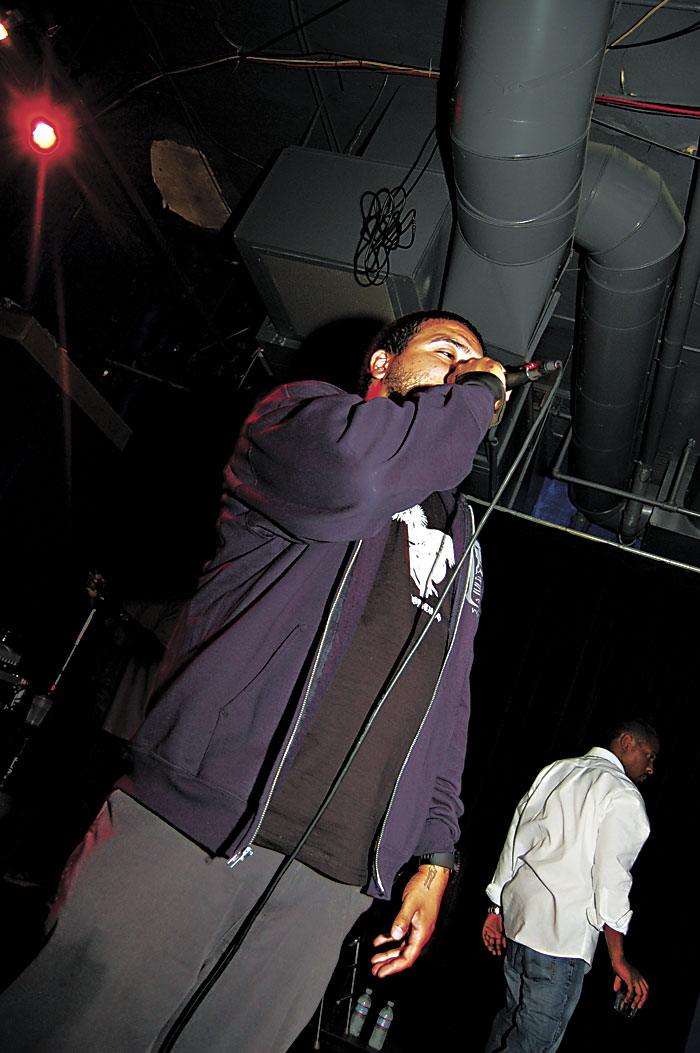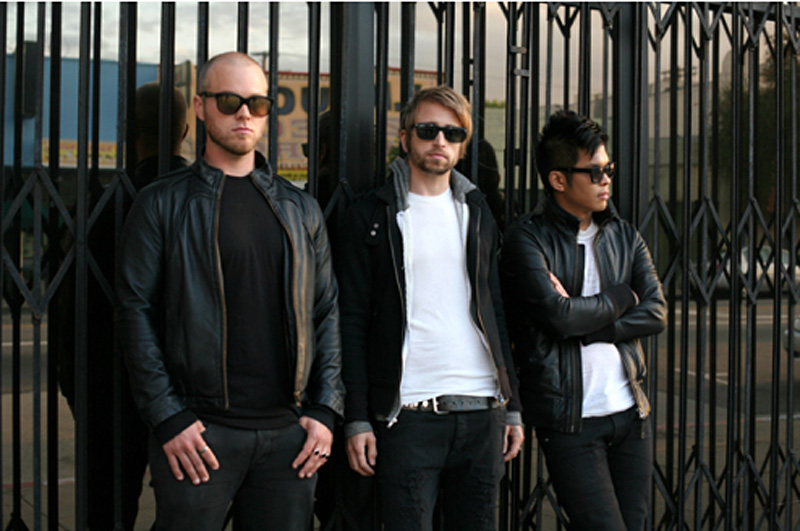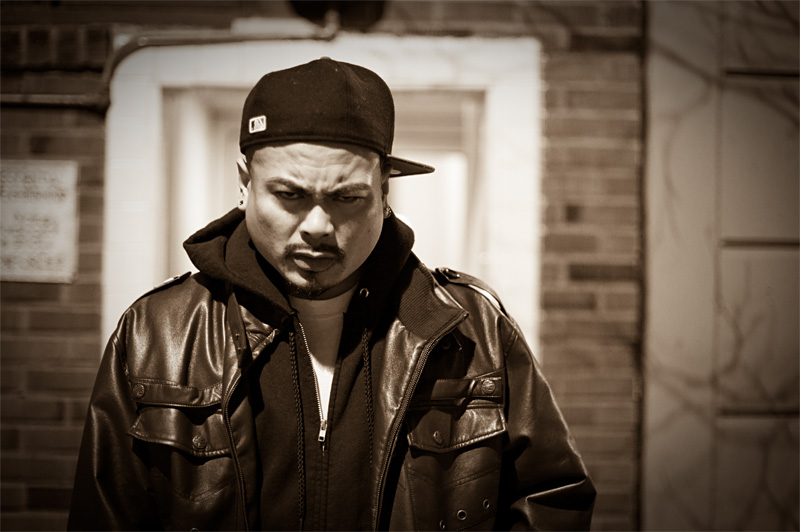The label “hydra-headed” isn’t an insult for Onry Ozzborn. Rather, it’s a natural part of being a hip-hop artist, an occupation that practically requires workers to adapt multiple alter egos. Despite the fact that he’s been toiling in the underground for years as a soloist and member of the crew Oldominion under various names—bringing attention and recognition not only to himself but to Seattle’s hip-hop scene in the process—I always associate him first with Count Draven, his persona in the duo Grayskul, which he formed with Count Magnus (aka “JFK”—see, no one is immune).
Together the two MCs created a sound spiked with the stuff of nightmares: missing persons, juvenile delinquents, corporate radio. But there existed in the music a wicked playfulness—the type that prompts people to sneak up behind others and shout “Boo!” I always keep this in mind when I meet Ozzborn in person, because the intimidating elements of both his appearance and demeanor recall my mental image of Count Draven: a carefully shaped black goatee (sans mustache), a brooding countenance, and a voice that ejects thoughts with an unwavering deliberateness.
I’ll admit it: He used to unnerve me a bit.
Thing is, because Ozzborn is a battle-torn vet of the underground, he knows that a little enigmatic flair goes a long way—people are drawn to that which they don’t understand, even if it scares them. This is especially true of his involvement with the Gigantics. Their debut album, Die Already, dropped Sept. 30, and is the product of a long slog through several years of experimentation and artistic evolution—as one would expect when five mysterious, boundary-pushing producers huddle together in the studio.
“I told everybody it was my five-man production team,” says Ozzborn, who has been secretive about who exactly the Gigantics are. While for a moment I think he’s going to be cagey and keep their names under wraps, he gives them up without much prodding: Onry Ozzborn, Count Draven, and Reason, plus the identities of his son and girlfriend (the latter three are also aliases for Ozzborn himself).
I suspect he offers them mainly because he’s excited about the album—deservedly so. Die Already began as a respite from solo projects, evolved into a concept album tracing Ozzborn’s life story, and eventually became something of a cross between both. It took about three years to make and features 53 MCs, but it’s not a compilation. Instead, the Gigantics place MCs above the beats, and in the process create some subversive shit.
From independent major players such as Aesop Rock to Seattle mainstays such as Macklemore, the rappers run wild over Ozzborn’s simple beats, designed to enable them to become immersed in their art—not unlike a set for a stage actor. For hip-hop producers to do this in a genre currently typified by bad rappers made better by first-class beats is kinda, well, out there. But for a guy who considers himself a “beat-maker” and not a producer to be doing this alone under five aliases is downright remarkable.
In order to manufacture Die Already‘s sonic structure, Ozzborn relied on three pieces of equipment: a record player, a CD player, and a vintage unit called an ASR-X machine that, says Ozzborn, “most producers hate.” No, the digital wave hasn’t broken on Ozzborn’s shores yet, partly because “I’m terrible with computers,” but mostly because the ASR-X imbues songs with a sloppiness lost on new technology like ProTools. Herein lies authenticity.
Most of the album splinters in as many directions as there are MCs. And let it be known: the Northwesterners handle business. On “The Explanation,” Aesop Rock, Eligh of Living Legends, and Reason square off over a spaghetti Western–style guitar that midway through falls into a lazy harmonica. And “Shut Up” is pure hip-hop: b-boy shout-outs, liberal scratching, and battle-rhymes delivered by L.A.’s Murs, Boston’s Mr. Lif, and local hero Vitamin D.
Remnants of Ozzborn’s “life story” concept remain in a handful of the songs, including “Biological Nothing,” in which Candidt of Oldominion assumes the identity of Ozzborn’s drug-dealing, wife-beating dad, and “Memories,” in which JFK portrays the unborn Ozzborn floating in his mother’s belly while the dealing and spousal abuse is happening. But the concept’s been whittled way down.
Indeed, Ozzborn seems more inclined to hype his colleagues showcased on Die Already—especially those from our rain-soaked region—than hedoes himself, saying “I want people to hear this and be like, ‘Can you spit or not?’ Because we can.” Then again, that’s just Ozzborn talking. Wonder what his other heads have to say?








